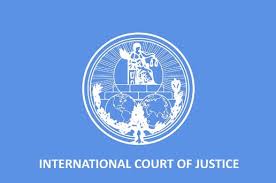What is the relation between International Law and Municipal Law?
📘 Relation between International Law and Municipal Law
Definitions:
International Law:
The set of rules and principles that govern relations between sovereign states and other international actors.
Municipal Law:
The domestic law of a state, including its constitution, statutes, regulations, and judicial decisions, that governs individuals and entities within that state.
Relationship Overview:
The relationship between international law and municipal law concerns how international law is applied and enforced within a country’s domestic legal system.
Theories Explaining the Relation
1. Dualism
Treats international law and municipal law as two separate legal systems operating independently.
For an international treaty or norm to have effect domestically, it must be incorporated by legislation.
Example: The United Kingdom follows this approach—treaties don’t automatically become part of domestic law.
2. Monism
Views international law and municipal law as part of a single legal system.
International law automatically becomes part of the municipal law upon ratification or by virtue of constitution.
Example: The Netherlands follows this approach—international law has direct effect domestically.
Practical Implications
| Aspect | Dualism | Monism |
|---|---|---|
| Relation between laws | Separate legal systems | One integrated legal system |
| Domestic effect of treaties | Only with implementing legislation | Directly applicable in domestic courts |
| Enforcement | Courts apply municipal law primarily | Courts can apply international law directly |
Constitutional Perspectives
Many countries specify in their constitution how international law relates to domestic law.
For example, India follows a modified dualist system:
International treaties do not automatically become part of Indian law.
Parliament must enact legislation to implement treaty obligations domestically.
However, international law principles can guide judicial interpretation.
Interaction and Conflict
When municipal law conflicts with international law:
In dualist states, municipal law prevails unless changed.
In monist states, international law usually prevails.
States are expected to fulfill their international obligations in good faith (principle of pacta sunt servanda).
Summary Table
| Feature | International Law | Municipal Law |
|---|---|---|
| Scope | Governs relations between states | Governs relations within the state |
| Enforcement | Depends on consent and cooperation | Enforced by domestic courts |
| Relation in Dualism | Separate systems | Must enact laws to implement treaties |
| Relation in Monism | Part of a unified legal order | Directly applicable |












comments